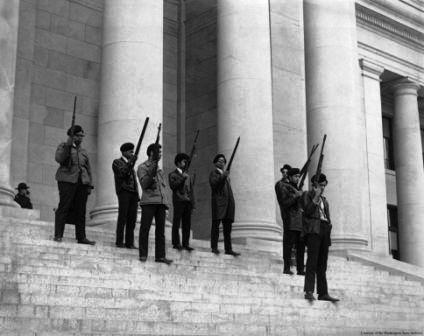"Right to Carry" and the "Tragedy of the Commons"

The controversy about carrying guns in public is not new. In 1967, however, the political alignments on this issue were completely different. Many conservatives (and others) objected when the Black Panthers insisted on exercising this right. In response, Governor Ronald Reagan signed the Mulford Act banning the carrying of guns in public.
Many defenders of liberty have felt the need to reflexively defend gun-toting citizens at these rallies. This is a mistake, or at least an incomplete response. A far more productive contribution to an otherwise impoverished debate is to emphasize privatization as a solution. We can only find a just and efficient resolution by treating this as a tragedy of the commons issue.
Both sides have a point but neither can ever be satisfied as long as thoroughfares, parks, and other venues for town halls or rallies continue to be government owned. Under private property, the issue becomes a relatively simple one: the owner decides who can carry guns. The problem (to the extent it is a problem) arises only when we take private property out of the equation. In the absence of privatization, the controversy will never end until one side or the other forces its will over the commons through the brute force of legislation.